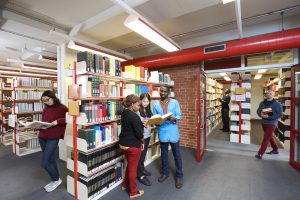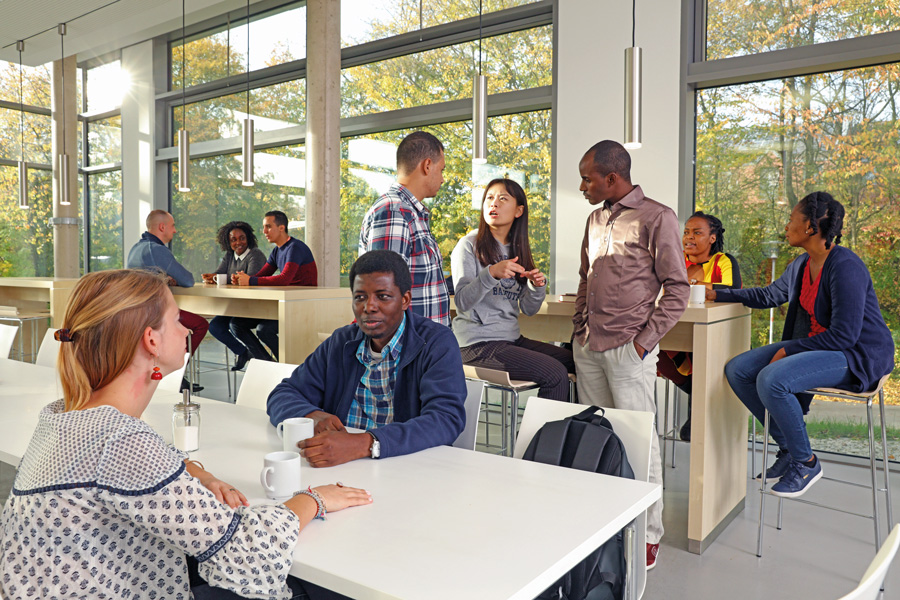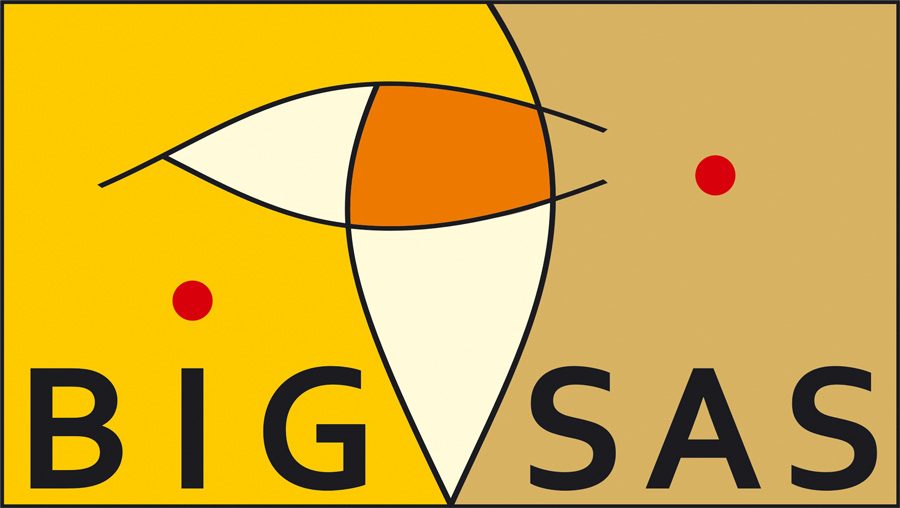Multidisciplinary doctoral training in an international environment – the BIGSAS way
- Arts & Humanities
The campus University of Bayreuth in northern Bavaria’s historic city is home to the Bayreuth International Graduate School of African Studies (BIGSAS). Since its inception in 2007, BIGSAS has been committed to research based on international collaboration and interdisciplinarity. With Prof Dr Ibriszimow at the helm, BIGSAS has gone from strength to strength. Senior Fellow in African Linguistics, Prof Dr Ibriszimow has served as Dean of BIGSAS since 2009. Having served as Chair of African Studies, a position he still holds, for ten years prior to that he was well placed to head up BIGSAS. Since it was founded, BIGSAS has been funded through the ‘Excellence Initiative’ of the German Research Foundation (DFG), which promotes top-level research. To date, 116 Junior Fellows have successfully completed the PhD programme.

Carrying out and successfully completing a PhD project within three years is a challenge. It requires effective planning, discipline, time and inspiration. At BIGSAS, this impressively short time-to-degree is achieved through a structured PhD programme and highly supportive environment, provided by a strong emphasis on multidisciplinary mentorship. Today, BIGSAS boasts 86 Junior Fellows from 26 African, American, Asian and European countries at different stages of their PhD research. As varied as their backgrounds are, so are their fields of research.

- Uncertainty, Innovation and Competing Orders in Africa
- Knowledge, Communication and Communities in Motion
- Negotiating Change: Discourses, Politics and Practices of Development.
The three research areas formulate strategic research directions for the Fellows and other members of BIGSAS, while also representing the research interests and profiles of the Senior Fellows.
Precious partnerships
An important aspect of the BIGSAS strategy is that it is driven by African universities. As Prof Dr Ibriszimow says, ‘Research on Africa is only possible in collaboration with Africa!’ Additional support, guidance and cultural diversity is provided by partnerships fostered between the University of Bayreuth and its six African partner universities in Benin, Ethiopia, Kenya, Morocco, Mozambique and South Africa. The collaborative nature of the programme creates a positive environment for Fellows to establish themselves as scientists and ensures professional diversity during their doctoral training.
Multidisciplinary mentorship
Mentoring is a vital component of the BIGSAS experience for Junior Fellows. In addition to their supervisor, each PhD student has two mentors, both Senior Fellows who have been through the process themselves and are therefore ideally placed to offer helpful encouragement and assistance. This ‘Mentoring Group’ not only offers the BIGSAS Junior Fellows valuable support to write their thesis within three years, it also enhances their research skills through discussions and lively exchange of thoughts and ideas with mentors. Participation in self-organised work groups and summer schools provides additional opportunities for students to discuss and develop their research topics and gain valuable academic skills. 
You don’t have to look too hard to see the extent of the supportive environment that BIGSAS creates for its students. In addition to the normal lecture programme, the graduate school organises additional activities such as summer schools, workshops and lectures by guests from other institutions. To date, more than 600 highly renowned visiting scholars who are committed to jointly innovate research on Africa have participated in the teaching of BIGSAS students! The Fellows themselves are actively encouraged to invite academics they would like to discuss or work with. Interdisciplinary workshops bring doctoral students together, giving them opportunities to discuss and share projects, facilitating exchange beyond traditional disciplinary boundaries.
BIGSAS has a proud history of generating opportunities for its Junior Fellows, through an inter- and multidisciplinary approach.
BIGSAS Alumnus, Jimam Lar, describes his experience at BIGSAS: “As a graduate school focused on African studies, BIGSAS is built on the pillars of individuality, internationality, and interdisciplinarity. While internationality and interdisciplinarity refer to the diversity of national and disciplinary backgrounds within the graduate school, and the interactions and collaborations that this creates, individuality underscores the fact that each doctoral student has his/her own path to follow and consequently story to tell.”
Gender and Diversity Programme
BIGSAS welcomes a diverse range of students. Prof Dr Ibriszimow explains, ‘We cherish this diversity, as it creates an environment where people of different backgrounds and viewpoints can meet, interact, and learn from each other.’ The Gender and Diversity Programme at BIGSAS offers opportunities to participate through training, networks, work groups, coaching, and a support and advice service. The overarching aim is to empower underrepresented groups and disadvantaged individuals, while creating an awareness of matters of diversity.
Outreach activities
There are numerous ways in which to engage in and with German society to give back a little of the fantastic opportunities offered at Bayreuth, and this is actively encouraged at BIGSAS. Numerous activities and events promote cultural connections and exchanges, transferring new knowledge on Africa, bridging the gap between ‘town’ and ‘gown.’
Research on Africa is only possible in collaboration with Africa!
One example is the renowned BIGSAS Journalist Award for excellent reporting on Africa in German media, offered by Alumni of BIGSAS. It was established in 2010 as a means of tackling the negative stereotypes and clichés about Africa commonly seen in the media. The biennial award is presented to the entry that best presents a balanced picture of Africa. Another initiative, BIGSAS@school encourages Fellows to visit local schools to explain their research and answer questions about cultures and life in Africa. 
The BIGSAS family
There is a thriving community spirit on campus. From the moment Fellows arrive they are welcomed at the ‘Old-Meet-New’ event. There are numerous activities on offer, from BIGSAS Football Club and Cinema Africa! to organised family days by the International Club of the University. BIGSAS accompanies the annual Afrika-Karibik-Festival which is a major event on the Bayreuther calendar. This three-day festival showcases the diverse culture forms from across Africa and the Carribbean. The BIGSAS Literature Festival brings delegates and scholars together from around the globe to connect and exchange knowledge on Africa. Collectively, these extra-curricular activities make for an incredibly valuable experience. 
BIGSAS’s success
BIGSAS is a truly intercontinental network of individuals and institutions dedicated to creating new forms of mutual academic learning. Now in its eleventh year, BIGSAS has a proud history of generating opportunities for its Junior Fellows, through an inter- and multidisciplinary approach, standing them in good stead for pursuing a path of research into topics relevant for the global future.
To find out more about BIGSAS visit www.bigsas.uni-bayreuth.de
Freedom of thought in an environment appreciative of a multidisciplinary approach and multicultural points of view. We try to achieve this goal with our training structure based on recognising individual needs and supporting individual potentials and aspirations. Only 15% of all applicants become members of our school, there are no quotas for admittance to BIGSAS. Intellectual brilliance, academic open-mindedness, creativity and readiness to share achievements, considerations and ideas with peers, Senior Fellows, and the community – this is what we are working and living for at BIGSAS.
References
- ‘It takes all sorts to make a world.’ The BIGSAS World 2014-15. Bayreuth International Graduate School of African Studies. http://www.bigsas.uni-bayreuth.de/en/download_files/press/tbw_2.pdf
- ‘Africa meets in Bayreuth’ DAAD Letter, 2017, https://www.daad.de/kataloge/daadletter/2017-03/#44
- BIGSAS Journalist Award 2017, Africa without clichés: Graduate School of the University of Bayreuth awards the BIGSAS Journalist Prize 2007; 31 May 2017
http://www.uni-bayreuth.de/de/universitaet/presse/pressemitteilungen/2017/060-BIGSAS-Journalistenpreis/index.html - ‘Afrika-Festival: Mutige Modenschau’ Nordbayerischer Kurier, 18 July 2016 http://www.nordbayerischer-kurier.de/nachrichten/afrika-festival-mutige-modenschau_495318
- Bayreuth International Graduate School of African Studies http://www.bigsas.uni-bayreuth.de/en/index.html
The Bayreuth International Graduate School of African Studies (BIGSAS) covers 19 different disciplines, in the areas of Humanities and Social/Cultural Sciences. Dean of the School, Prof Dr Dymitr Ibriszimow’s research focuses on Chadic, Berber, Afro-Asiatic, comparative, historical linguistics, cognitive semantics and history of the people of the Lake Chad basin.
Funding
Deutsche Forschungsgemeinschaft, DFG (German Research Foundation) on behalf of the Excellence Initiative of the German Federal and State Governments
Collaborators
BIGSAS Partner Universities:
- Université d’Abomey-Calavi, Cotonou, Benin
- Addis Ababa University, Addis Ababa, Ethiopia
- Moi University, Eldoret, Kenya
- Mohammed V University of Rabat, Rabat, Morocco
- Universidade Eduardo Mondlane, Maputo, Mozambique
- University of KwaZulu-Natal, Durban, South Africa
Bio
 Prof Dr Dymitr Ibriszimow holds the position of Chair of African Studies II (African languages beyond Niger-Congo) at the University of Bayreuth since 1999, and has been Dean of the Bayreuth International Graduate School of African Studies (BIGSAS) since 2009.
Prof Dr Dymitr Ibriszimow holds the position of Chair of African Studies II (African languages beyond Niger-Congo) at the University of Bayreuth since 1999, and has been Dean of the Bayreuth International Graduate School of African Studies (BIGSAS) since 2009.
Contact
Prof Dr Dymitr Ibriszimow, Dean, BIGSAS,
Bayreuth International Graduate
School of African Studies
LS Afrikanistik II
Universität Bayreuth
D-95440 Bayreuth
Germany

E: [email protected]
T: +49 / +921 / 55-3581
W: www.bigsas.uni-bayreuth.de
W: www.afrikanistik.uni-bayreuth.de/en/team/Professors-Assistant-Professors/Prof_Dr_Dymitr-Ibriszimow/index.php
Creative Commons Licence
(CC BY-NC-ND 4.0) This work is licensed under a Creative Commons Attribution-NonCommercial-NoDerivatives 4.0 International License. Creative Commons License
What does this mean?
Share: You can copy and redistribute the material in any medium or format

A multimodal stereovision framework to model wildfires


Cutting the cord: babies benefit from a delay

Battling blood cancer: virus targets multiple myeloma



A simple formula demystifies Simpson’s paradox

